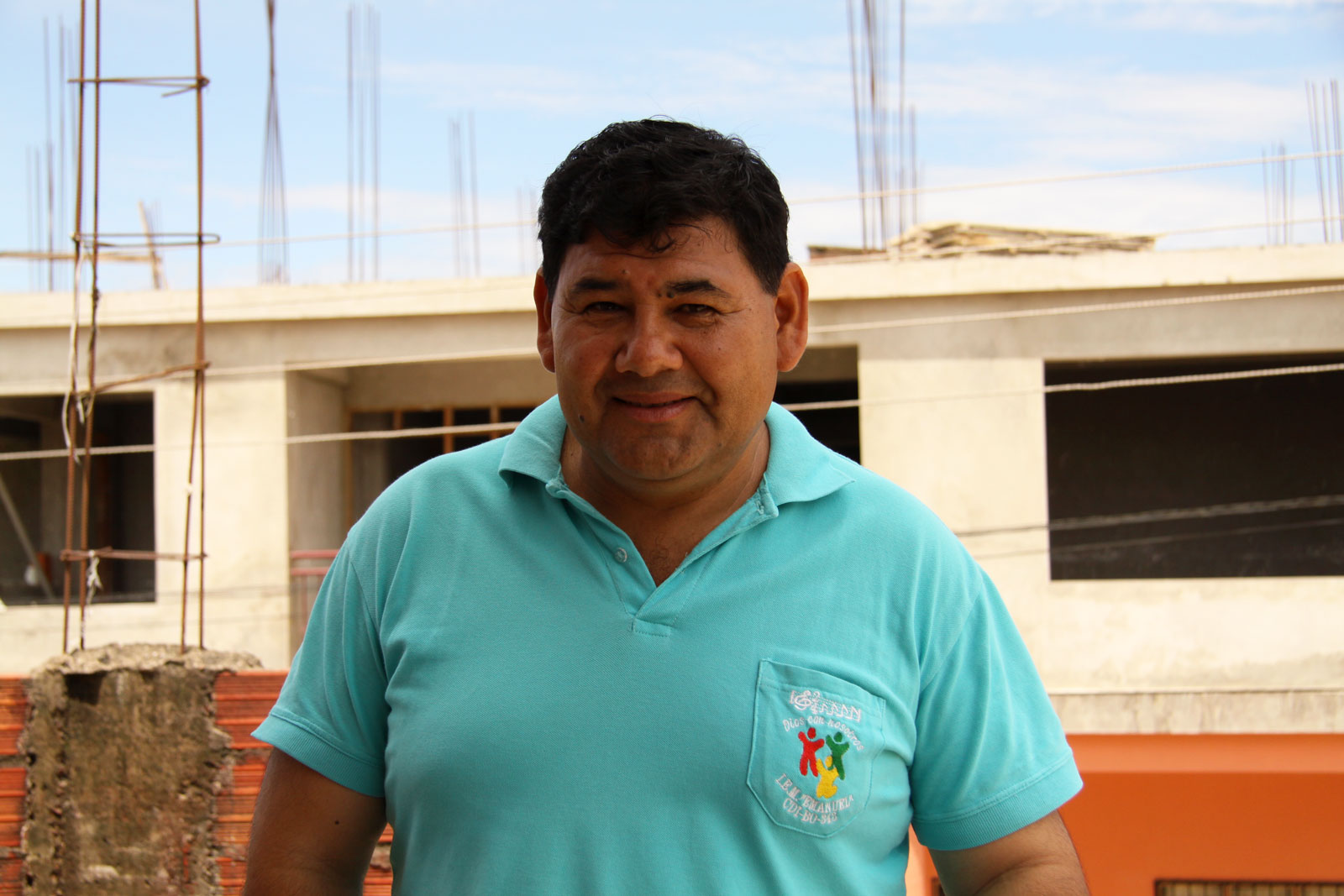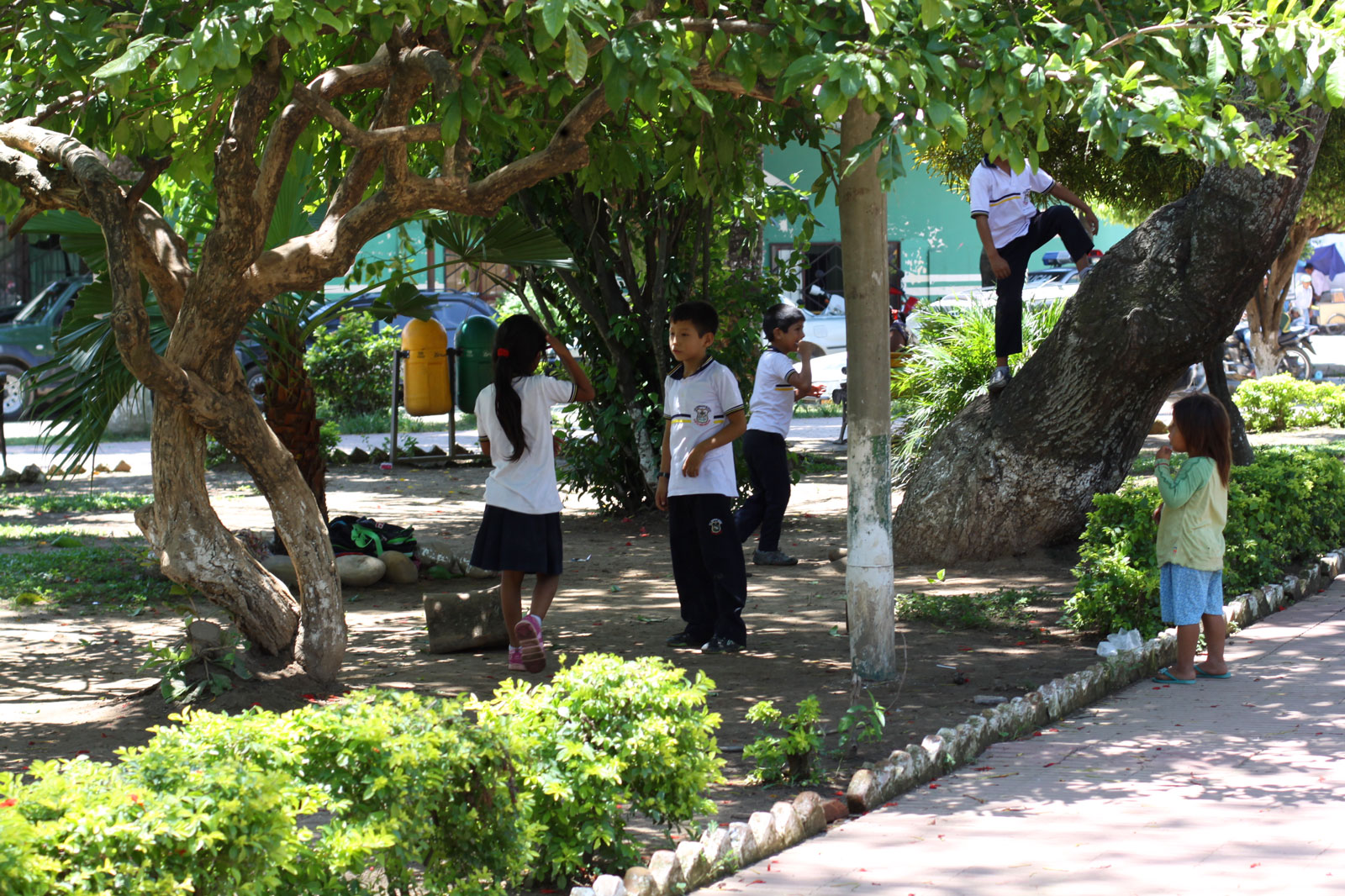One January afternoon in Bolivia, Daniela* went walking—and didn’t come home. But in a seemingly hopeless situation, her local church took up the fight for her freedom.
07 Feb, 2019
High in the hills north of Santa Cruz, Bolivia, lies a string of communities known as a “red zone” for human traffickers.
Ruthless, organised and widely feared, the traffickers pick their targets—usually girls and young men—and wait for just the right moment to strike. Day or night, they swoop; they use simple deception or brute force and are away in an instant. Their victims vanish with them. Most never reappear; they are simply gone.
When Pastor Alcides Valenzuela first heard that Daniela—a teenaged girl from the Compassion centre at his church—had disappeared, he knew immediately what had happened. The threat of kidnapping was a daily reality for the children he fought to protect.
The traffickers targeted families living in poverty--families with the least political or social influence, the least able to raise the alarm and fight to get their children back.
“Kidnappers don’t mess with complete families; they mess with broken families,” he says.
For years, he and his church had educated the children of their neighbourhood and the Compassion program to be wary of strangers, to travel in groups, to know their rights, to never get in a car with someone they didn’t know.
Fragile defences against an overwhelming threat, but all they had.

Pastor Alcides was determined to bring Daniela home.
Now, Pastor Alcides knew the only response to the silent fear rising in his throat, the same fear that choked his neighbourhood, was to make noise—immediate, bold, persistent noise.
“When we found out [she] had been kidnapped, we started to mobilise along with her family … We had to speak with the Mayor from Santa Cruz. We reached the vice-ministers, ministers, the mayor, city councillors and congressmen. We had to reach everyone, because if [we don’t] mobilise this way, there is no movement and nothing happens,” he says.
As the days dragged into weeks, they kept the pressure up as best they could, rallying in the streets and holding prayer vigils in the hope that Daniela would be returned to them.
Drugged, force-fed alcohol to keep her compliant, moved from house to house, Daniela endured a nightmare month of sexual abuse and violence. In lucid moments, she witnessed many other teens and even children as young as eight or 10 years old trapped in the same horror.
“The girls [were] being forced to do things they don’t want to do,” says Daniela. “[The traffickers] were planning to take girls to other countries … I didn’t think I was going to return home. I didn’t know what to do or how to escape.”
The number of kidnappings in Bolivia grew dramatically between 2005 and 2013. Some of the rise in this rate is probably due to better awareness and reporting, and, thankfully, the number dropped slightly from 2012 to 2013. Yet Pastor Alcides says many of the girls at his church’s child development centre have been threatened.
Usually, girls are trafficked into the sex trade in Bolivia or across borders. Young men are forced into labour or criminal cartels, working dangerous jobs for little or no pay. Their families don’t know where they are; they have no connection with their former lives. They are the kidnapped, the disappeared. Modern-day slaves with no rights—and no one to help them.

Local police reports show that most trafficking victims are between 12 and 24 years old.
Though they had no way of knowing where Daniela was, her family, the pastor and the church members petitioned the authorities, demanding to know what was being done to get her back. They marched in the streets and met officials at every chance, desperate for whatever help they could get.
After a gut-wrenching month of phone calls and relentless pressure, Pastor Alcides told the vice-mayor that the entire town was ready to begin a blockade that would bring traffic in the region to a standstill—and keep it there for as long as it took to bring their girl home.
Within 72 hours, Daniela reappeared, rescued from the traffickers’ grip by undercover police.
Even in the midst of their joy and relief at Daniela’s return, Pastor Alcides and his church recognised that she and her family would need time and help to find healing. With Compassion’s help, they organised counselling and extra support as she dealt with the trauma of her experiences.
“If I hadn’t been part of Compassion, I would probably never have returned home,” she says. “I’m very thankful for all the help they provided my family.”
Despite Daniela’s reappearance, the community still lives with the daily fear that more children could be taken. The church is recognised by the local authorities for its role in protecting children from danger, and continues to educate families in the hope of preventing similar tragedies playing out.
For Daniela, life has moved on. She’s graduated the program and moved to another city. Yet the thought that other families are suffering the same trauma hers did never leaves her for long.
“[The girls’] families must not be in peace, because they don’t know where their children are.”
You can play a part in ensuring a child like Daniela is known, loved and protected by the local church and trained child development centre staff. Sponsor a child and become part of that child's extra layer of protection and security.
Words by Galia Oropeza and Richard Miller
*Name changed for child protection purposes

